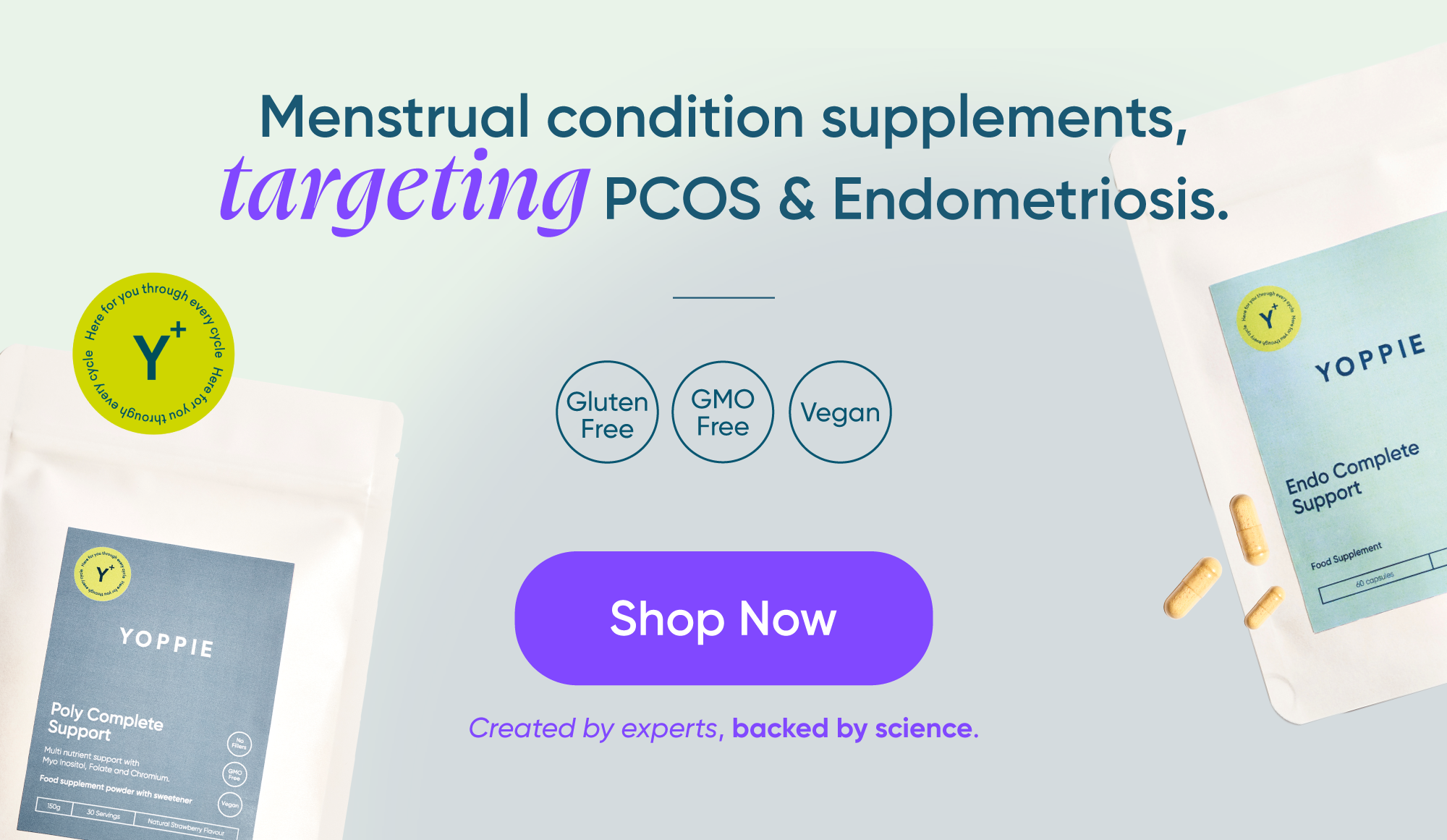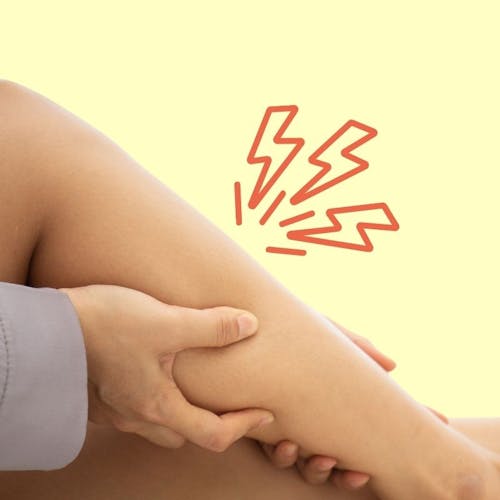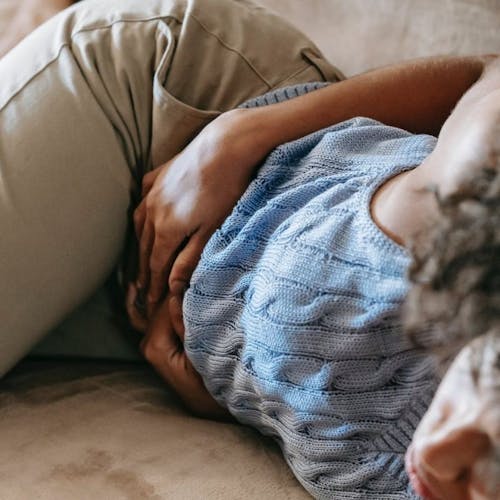This website uses cookies to enhance the user experience. By using Yoppie you are agreeing to our use of cookies.
How Does Endometriosis Affect Your Menstrual Cycle?
Written by Yoppie
03 May 2022
What is endometriosis?
How does endometriosis affect the menstruation phase?
How does endometriosis affect the follicular phase?
How does endometriosis affect the ovulation phase?
How does endometriosis affect the luteal phase?
But wait… if the tissue is triggered by hormones during the menstruation phase, why does it affect the rest of my cycle?
We’re done with just periods. Don’t get us wrong; we still love to talk about those bleed days, but we know there’s so much more to your menstrual cycle each month than just the period. From your follicular phase to your luteal phase and beyond, we’re looking at endometriosis, how it affects your body at every stage of your cycle, and why we should all be considering our menstrual health throughout the month.
What is endometriosis?
To summarise a pretty complicated issue; endometriosis is a condition where tissue similar to the tissue lining the inside of the uterus starts to grow outside the uterus, mainly on the ovaries, fallopian tubes, inside the pelvis and sometimes beyond. It’s the second most common gynaecological condition here in the UK, affecting an estimated 1.5 million people.
Although endometriosis is known for its primary symptom - abdominal pain - it is also thought to impact the length of the menstrual cycle too, making the bleed last longer. People with endo may find their overall cycles become shorter too, with their next period starting sooner than the average 28-day cycle.
How does endometriosis affect the menstruation phase?
This phase is, for most people, when endometriosis has the biggest impact. Since the tissue growing outside the uterus reacts in the same way as the kind inside (thickening, then breaking down) this can cause anything from mild discomfort to severe pain, depending on the severity of your endo. This is because unlike tissue inside the uterus, it has nowhere to go when it breaks down.
Many endo sufferers will experience longer-than-average periods, sometimes lasting more than 7 days, with spotting between periods also common. Periods can also be heavier than the average, and you may find you need to change pads or tampons after less than 2 hours. Endo symptoms are usually at their worst in the menstruation phase, and these can include:
- Excessive menstrual cramps in the abdomen
- Lower back pain
- Pain during sex
- Fertility issues
- Painful urination or bowel movements
- Gastrointestinal issues like diarrhoea, constipation and nausea
How does endometriosis affect the follicular phase?
For some, endometriosis only produces symptoms and pain around the time of their period, but for others it doesn’t take a break! Regardless of where it grows in the body, endometrial tissue gets triggered by fluctuating hormones, and during the follicular phase, oestrogen is what causes it to react, specifically oestradiol.
This hormone increases during the first two weeks of your cycle, which is what influences the thickening of the endometrium in normal, healthy tissue. Unfortunately it also causes the misplaced tissue outside the uterus to grow, thus causing endo pain.
How does endometriosis affect the ovulation phase?
During the ovulation phase, people with endometriosis may experience some bleeding and pain, but the main issue during this phase is endo’s impact on fertility. Studies have found 30-50% of people with endometriosis are unable to get pregnant - there may be a few reasons for this.
For a pregnancy to happen, the egg must first be released from the ovary, make its way down the fallopian tube, be fertilised by a sperm cell, fix itself to the lining of the uterus, and start to grow - a lot of steps for one little egg to get through, and endo can affect almost all of them. Endometriosis can affect the egg quality, scar the fallopian tubes, distort the anatomy of the pelvis and cause inflammation there, cause hormones to fluctuate and affect the environment of the egg, impair implantation of a pregnancy, and more.
All of these possibilities make it more difficult for a person with endometriosis to become pregnant, but not impossible! So if you are trying to get pregnant, know that there are many options that can help - speak to your doctor to find out more.
How does endometriosis affect the luteal phase?
In the final phase of the cycle, pain sometimes begins before typical period cramps do, but again this depends, as your experience with endo won’t be the same as others with the condition. In the luteal phase, endometrial tissue begins to create microscopic glandular structures due to the introduction of progesterone, which can cause more endometrial tissue to grow, leading to bloating, pelvic discomfort, or pain before your next period.
But wait… if the tissue is triggered by hormones during the menstruation phase, why does it affect the rest of my cycle?
Good question! When endo causes endometriomas to form, this can lead to the formation of scar tissue and adhesions (bands of fibrous tissue) that can cause tissues and organs inside the pelvis to stick together - as you can imagine, this can cause a whole mess of pain! It can also lead to you developing symptoms throughout your cycle, not just during the bleed - although they do tend to get worse during your period.
The best way to level out hormones and reduce some of the symptoms throughout the month is to start taking hormonal contraception in order to manage hormone levels. This can cause a reduction in oestrogen which can stop new lesions forming, and make any heavy, long periods lighter and more regular. Hello stress-free cycle!
Want to know what phase you’re currently in? Head over to our website and take the short Learn Your Phase questionnaire to find out. We’re committed to helping you tackle the symptoms of every phase of your cycle, not just the bleed days. Whatever your symptoms or underlying conditions, we can help. And if you’ve got a question about endometriosis or the phases of your cycle, we’re all ears! Ask in our Full Stop FB group, or get in touch directly on IG at @itsyoppie - we’re always happy to help.
Section jump
Back to top
Subscribe To Our Newsletter
YOPPIE





© 2026 Yoppie is a registered trademark of Phlo Technologies Ltd.
Yoppie's supplements are not a substitute for a varied diet and healthy lifestyle and are not intended to diagnose, treat, or cure any disease. If you are pregnant, breastfeeding, have a medical condition or are under medical supervision, please consult with your doctor before taking any of our products.







